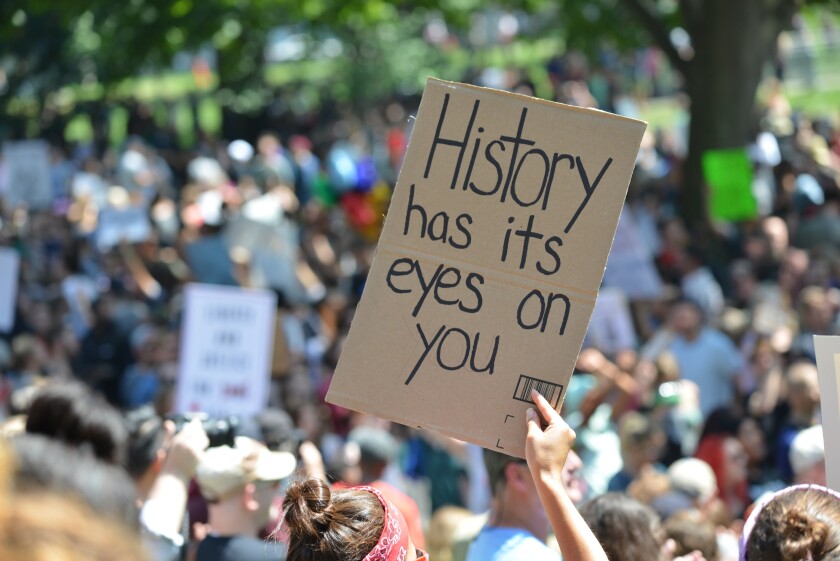Most law firms are very vocal about the need for and importance of diversity, equity and inclusion in the legal field.
But the extent to which firms have truly achieved their goals is questionable, as my colleague Sukanya Sarkar has often addressed.
At the very least, though, firms are advocating for diversity. Many have made strides and are willing to speak out publicly about DEI and all that it encompasses.
At its core, DEI is about making the world a better place.
It’s about recognising injustices and making our communities and organisations places where we fight those injustices and where all employees are welcome.
It’s also an intersectional framework.
DEI efforts include race, gender, religion, sexual orientation, and other demographics that have been underrepresented or faced discrimination.
Employees, however, aren’t only affected by injustice within their firms, but also outside of the work environment. That’s part of the reason why pro bono work is so crucial.
To the extent that they can, firms should use their resources to make the world a better place and help employees cope with catastrophes that hamper their abilities to feel well at work.
Gaza crisis
That is why the crisis in Gaza should be a DEI issue for firms.
No one reading this needs me to tell them that the situation in Gaza is untenable.
Reports suggest that more than 30,000 Palestinians have been killed. Famine is imminent, if not already there.
Just today, an Israeli strike killed seven World Central Kitchen workers.
As a Jewish American, I am horrified by the suffering that has taken place at the hands of the Israeli government, just as I was appalled when Hamas killed 1,139 Israelis and foreign nationals and took a further 253 people hostage.
I know that a lot of people have had private conversations among family, friends, and even colleagues about what’s happening, and are grieving the loss of life and security in Gaza.
I have talked about this issue a lot with loved ones but I admit I have failed to do what I should publicly.
Firms that truly care about DEI issues need to figure out how they can advocate for Palestinians, or at least ensure that their employees feel enabled to do so.
This issue matters not only for the sake of the Palestinians, who are in a dire situation, but for the sake of law firms' employees.
People may have different views on the broader conflict.
However, the younger generation, Muslim lawyers and others who are underrepresented or have less power at firms are statistically more likely to be sympathetic to the Palestinian cause and be critical of the Israeli government.
If lawyers feel that they can’t be open about their grief and anger, or that their colleagues don’t care about Palestinian lives, they won’t be able to bring their full selves to work or feel included in their workplaces.
This will diminish firms’ abilities to recruit and retain lawyers from underrepresented backgrounds.
What to do
I don’t purport to have all the answers to the Israeli-Palestinian conflict. But there are things that firms and lawyers can do.
In the wake of Hamas's attack on Israel in October 2023, law firm partners rallied to provide relief to Israelis affected by the attacks.
Palestinian civilians deserve the same amount of care.
Those who haven’t can and should provide relief to Palestinians through organisations like the Palestine Children's Relief Fund, UNICEF, and the Palestine Red Crescent Society.
There also needs to be a ceasefire.
This isn’t an unpopular position.
A study from February this year found that 67% of US voters supported a permanent ceasefire and a de-escalation of violence in Gaza.
Realistically, most law firms aren’t going to call for a ceasefire institutionally.
But they can make it clear to their employees that they have the right to call for one as individuals, both on social media and in other public spaces.
That includes reassurances that they can criticise the Israeli government’s actions or call for suspending or no longer providing US aid to Israel without risking their jobs and facing career setbacks.
They can give their staff flexibility to attend protests that take place during the day.
Individual partners can also lead the charge by calling for a ceasefire on social media. This would give associates comfort to do the same.
Law firms and lawyer advocacy won’t change all the destruction that has already taken place. It won’t fix the crisis in Gaza by itself.
But the legal community should be able to at least say that Palestinians, and those concerned for their welfare, are included in their DEI efforts.











